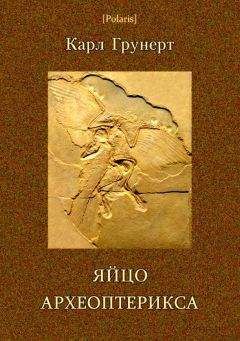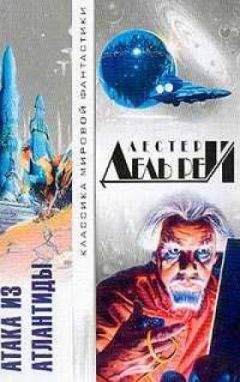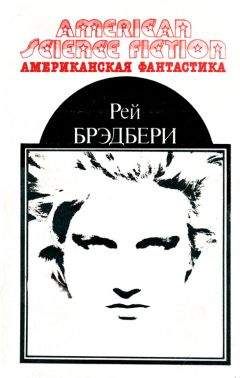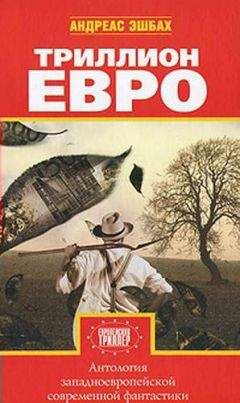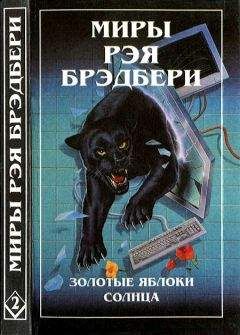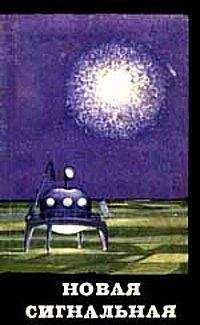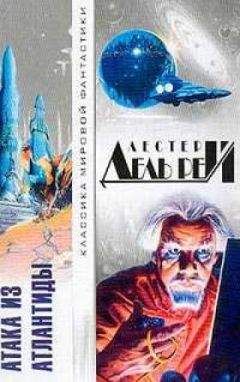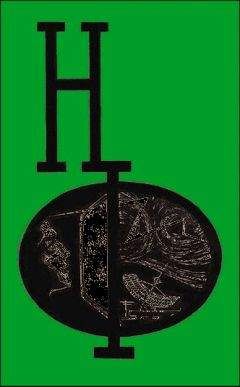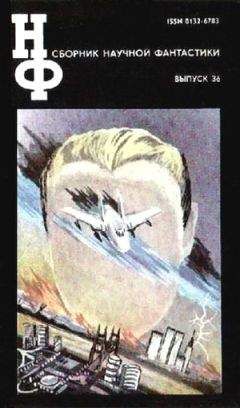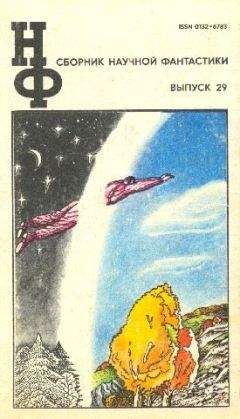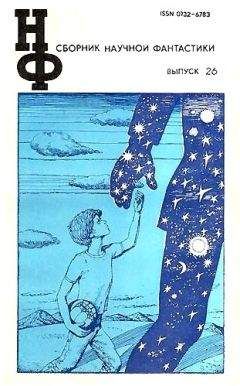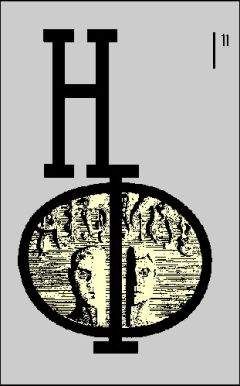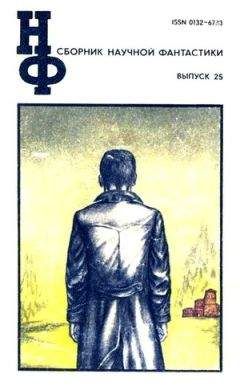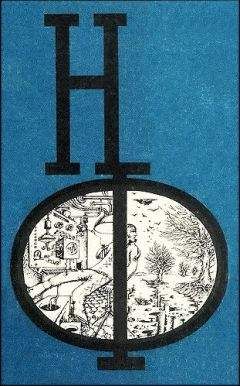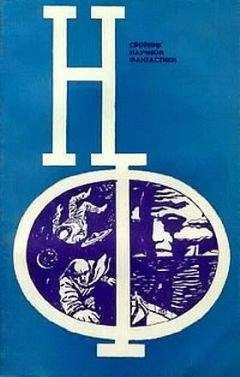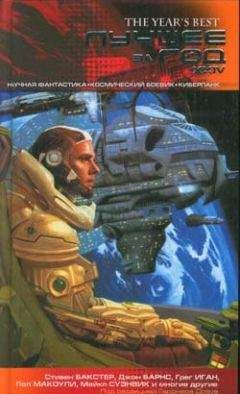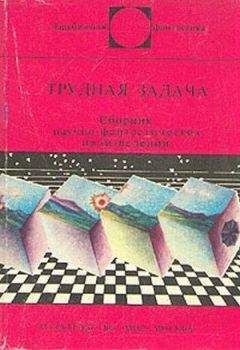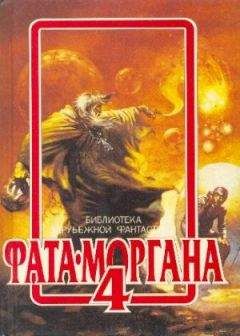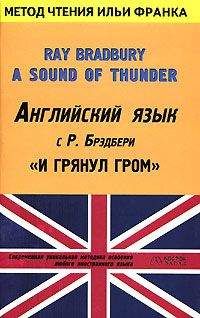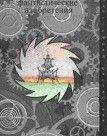Рэй Бредбери - Золотые яблоки солнца (The Golden Apples of the Sun), 1953
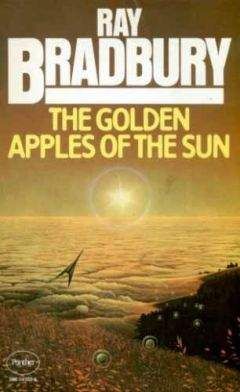
Скачивание начинается... Если скачивание не началось автоматически, пожалуйста нажмите на эту ссылку.
Жалоба
Напишите нам, и мы в срочном порядке примем меры.
Описание книги "Золотые яблоки солнца (The Golden Apples of the Sun), 1953"
Описание и краткое содержание "Золотые яблоки солнца (The Golden Apples of the Sun), 1953" читать бесплатно онлайн.
В этом сборнике писатель позволяет себе отойти от научной фантастики, публикуя реалистичные истории, сказки и детективы, а фантастические рассказы сводя к зарисовкам («Вышивание»). Отличная книга, в которой видны, пожалуй, все грани Брэдбери-прозаика. В 2005-м году был переиздан под названием «И грянул гром» в преддверии выхода экранизации этого рассказа.
– Нет.
– Нет? – Молчание, только что-то потрескивает, и это – как обвинение.
– Вы женаты, мистер Мид?
– Нет.
– Не женат, – произнес жесткий голос за слепящей полосой света.
Луна поднялась уже высоко и сияла среди звезд, дома стояли серые, молчаливые.
– Ни одна женщина на меня не польстилась, – с улыбкой сказал Леонард Мид.
– Молчите, пока вас не спрашивают.
Леонард Мид ждал, холодная ночь обступала его.
– Вы просто гуляли, мистер Мид?
– Да.
– Вы не объяснили, с какой целью.
– Я объяснил: хотел подышать воздухом, поглядеть вокруг, просто пройтись.
– Часто вы этим занимаетесь?
– Каждый вечер, уже много лет.
Полицейская машина торчала посреди улицы, в ее радио-глотке что-то негромко гудело.
– Что ж, мистер Мид, – сказала она.
– Это все? – учтиво спросил Мид.
– Да, – ответил голос. – Сюда. – Что-то дохнуло, что-то щелкнуло. Задняя дверца машины распахнулась. – Влезайте.
– Погодите, ведь я ничего такого не сделал!
– Влезайте.
– Я протестую!
– Ми-стер Мид!
И он пошел нетвердой походкой, будто вдруг захмелел. Проходя мимо лобового стекла, заглянул внутрь. Так и знал: никого ни на переднем сиденье, ни вообще в машине.
– Влезайте.
Он взялся за дверцу и заглянул – заднее сиденье помещалось в черном тесном ящике, это была узкая тюремная камера, забранная решеткой. Пахло сталью. Едко пахло дезинфекцией; все отдавало чрезмерной чистотой, жесткостью, металлом. Здесь не было ничего мягкого.
– Будь вы женаты, жена могла бы подтвердить ваше алиби, – сказал железный голос. – Но…
– Куда вы меня повезете?
Машина словно засомневалась, послышалось слабое жужжание и щелчок, как будто где-то внутри механизм-информатор выбросил пробитую отверстиями карточку и подставил ее взгляду электрических глаз.
– В Психиатрический центр по исследованию атавистических наклонностей.
Он вошел в клетку. Дверь бесшумно захлопнулась. Полицейская машина покатила по ночным улицам, освещая себе путь приглушенными огнями фар.
Через минуту показался дом, он был один такой на одной только улице во всем этом городе темных домов – единственный дом, где зажжены были все электрические лампы и желтые квадраты окон празднично и жарко горели в холодном сумраке ночи.
– Вот он, мой дом, – сказал Леонард Мид.
Никто ему не ответил.
Машина мчалась все дальше и дальше по улицам – по каменным руслам пересохших рек, позади оставались пустынные мостовые и пустынные тротуары, и нигде в ледяной ноябрьской ночи больше ни звука, ни движения.
The April Witch 1952
Into the air, over the valleys, under the stars, above a river, a pond, a road, flew Cecy. Invisible as new spring winds, fresh as the breath of clover rising from twilight fields, she flew. She soared in doves as soft as white ermine, stopped in trees and lived in blossoms, showering away in petals when the breeze blew. She perched in a limegreen frog, cool as mint by a shining pool. She trotted in a brambly dog and barked to hear echoes from the sides of distant barns. She lived in new April grasses, in sweet clear liquids rising from the musky earth.
It's spring, thought Cecy. I'll be in every living thing in the world tonight.
Now she inhabited neat crickets on the tar-pool roads, now prickled in dew on an iron gate. Hers was an adapt-ably quick mind flowing unseen upon Illinois winds on this one evening of her life when she was just seventeen.
"I want to be in love," she said.
She had said it at supper. And her parents had widened their eyes and stiffened back in their chairs. "Patience," had been their advice. "Remember, you're remarkable. Our whole family is odd and remarkable. We can't mix or marry with ordinary folk. We'd lose our magical powers if we did. You wouldn't want to lose your ability to 'travel' by magic, would you? Then be careful. Be careful!"
But in her high bedroom, Cecy had touched perfume to her throat and stretched out, trembling and apprehensive, on her four-poster, as a moon the colour of milk rose over Illinois country, turning rivers to cream and roads to platinum.
"Yes," she sighed. "I'm one of an odd family. We sleep days and fly nights like black kites on the wind. If we want, we can sleep in moles through the winter, in the warm earth. I can live in anything at all – a pebble, a crocus, or a praying mantis. I can leave my plain, bony body behind and send my mind far out for adventure. Now!"
The wind whipped her away over fields and meadows.
She saw the warm spring lights of cottages and farms glowing with twilight colours.
If I can't be in love, myself, because I'm plain and odd, then I'll be in love through someone else, she thought.
Outside a farmhouse in the spring night a dark-haired girl, no more than nineteen, drew up water from a deep stone well. She was singing.
Cecy fell – a green leaf- into the well. She lay in the tender moss of the well, gazing up through dark coolness. Now she quickened in a fluttering, invisible amoeba. Now in a water droplet! At last, within a cold cup, she felt herself lifted to the girl's warm lips. There was a soft night sound of drinking.
Ceсy looked out from the girl's eyes.
She entered into the dark head and gazed from the shining eyes at the hands pulling the rough rope. She listened through the shell ears to this girl's world. She smelled a particular universe through these delicate nostrils, felt this special heart beating, beating. Felt this strange tongue move with singing.
Does she know I'm here? thought Cecy.
The girl gasped. She stared into the night meadows.
"Who's there?"
No answer.
"Only the wind," whispered Cecy.
"Only the wind." The girl laughed at herself, but shivered.
It was a good body, this girl's body. It held bones of finest slender ivory hidden and roundly fleshed. This brain was like a pink tea rose, hung in darkness, and there was cider-wine in this mouth. The lips lay firm on the white, white teeth and the brows arched neatly at the world, and the hair blew soft and fine on her milky neck. The pores knit small and close. The nose tilted at the moon and the cheeks glowed like small fires. The body drifted with feather-balances from one motion to another and seemed always singing to itself. Being in this body, this head, was like basking in a hearth fire, living in the purr of a sleeping cat, stirring in warm creek waters that flowed by night to the sea.
I'll like it here, thought Cecy.
"What?" asked the girl, as if she'd heard a voice.
"What's your name?" asked Cecy carefully.
"Ann Leary." The girl twitched. "Now why should I say that out loud?"
"Ann, Ann," whispered Cecy. "Ann, you're going to be in love."
As if to answer this, a great roar sprang from the road, a clatter and a ring of wheels on gravel. A tall man drove up in a rig, holding the reins high with his monstrous arms, his smile glowing across the yard.
"Is that you, Tom?"
"Who else?" Leaping from the rig, he tied the reins to the fence.
"I'm not speaking to you!" Ann whirled, the bucket in her hands slopping.
"No!" cried Cecy.
Ann froze. She looked at the hills and the first spring stars. She stared at the man named Tom. Cecy made her drop the bucket.
"Look what you've done!"
Tom ran up.
"Look what you made me do!"
He wiped her shoes with a kerchief, laughing.
"Get away!" She kicked at his hands, but he laughed again, and gazing down on him from miles away, Cecy saw the turn of his head, the size of his skull, the flare of his nose, the shine of his eye, the girth of his shoulder, and the hard strength of his hands doing this delicate thing with the handkerchief. Peering down from the secret attic of this lovely head, Cecy yanked a hidden copper ventriloquist's wire and the pretty mouth popped wide: "Thank you!"
"Oh, so you have manners?" The smell of leather on his hands, the smell of the horse rose from his clothes into the tender nostrils, and Cecy, far, far away over night meadows and flowered fields, stirred as with some dream in her bed.
"Not for you, no!" said Ann.
"Hush, speak gently," said Cecy. She moved Ann's fingers out toward Tom's head. Ann snatched them back.
"I've gone mad!"
"You have." He nodded, smiling but bewildered. "Were you going to touch me then?"
"I don't know. Oh, go away!" Her cheeks glowed with pink charcoals.
"Why don't you run? I'm not stopping you." Tom got up. "Have you changed your mind? Will you go to the dance with me tonight? It's special. Tell you why later."
"No," said Ann.
"Yes!" cried Cecy. "I've never danced. I want to dance. I've never worn a long gown, all rustly. I want that. I want to dance all night. I've never known what it's like to be in a woman, dancing; Father and Mother would never permit it. Dogs, cats, locusts, leaves, everything else in the world at one time or another I've known, but never a woman in the spring, never on a night like this. Oh, please – we must go to that dance!"
She spread her thought like the fingers of a hand within a new glove.
"Yes," said Ann Leary, "I'll go. I don't know why, but I'll go to the dance with you tonight, Tom."
"Now inside, quick!" cried Cecy. "You must wash, tell your folks, get your gown ready, out with the iron, into your room!"
"Mother," said Ann, "I've changed my mind!"
The rig was galloping off down the pike, the rooms of the farmhouse jumped to life, water was boiling for a bath, the coal stove was heating an iron to press the gown, the mother was rushing about with a fringe of hairpins in her mouth. "What's come over you, Ann? You don't like Tom!"
"That's true." Ann stopped amidst the great fever.
But it's spring! thought Cecy.
"It's spring," said Ann.
And it's a fine night for dancing, thought Cecy.
"… for dancing," murmured Ann, Leary.
Then she was in the tub and the soap creaming on her white seal shoulders, small nests of soap beneath her arms, and the flesh of her warm breasts moving in her hands and Cecy moving the mouth, making the smile, keeping the actions going. There must be no pause, no hesitation, or the entire pantomime might fall in ruins! Ann Leary must be kept moving, doing, acting, wash here, soap there, now out! Rub with a towel! Now perfume and powder!
"You!" Ann caught herself in the mirror, all whiteness and pinkness like lilies and carnations. "Who are you tonight?"
"I'm a girl seventeen." Cecy gazed from her violet eyes. "You can't see me. Do you know I'm here?"
Ann Leary shook her head. "I've rented my body to an April witch, for sure."
"Close, very close!" laughed Cecy. "Now, on with your dressing."
The luxury of feeling good clothes move over an ample body! And then the halloo outside.
"Ann, Tom's back!"
"Tell him to wait." Ann sat down suddenly. "Tell him I'm not going to that dance."
"What?" said her mother, in the door.
Cecy snapped back into attention. It had been a fatal relaxing, a fatal moment of leaving Ann's body for only an instant. She had heard the distant sound of horses' hoofs and the rig rambling through moonlit spring country. For a second she thought, I'll go find Tom and sit in his head and see what it's like to be in a man of twenty-two on a night like this. And so she had started quickly across a heather field, but now, like a bird to a cage, flew back and rustled and beat about in Ann Leary's head.
"Tell him to go away!"
"Ann!" Cecy settled down and spread her thoughts.
But Ann had the bit in her mouth now. "No, no, I hate him!"
I shouldn't have left – even for a moment. Cecy poured her mind into the hands of the young girl, into the heart, into the head, softly, softly. Stand up, she thought.
Ann stood.
Put on your coat!
Ann put on her coat.
Now, march!
No! thought Ann Leary.
March!
"Ann," said her mother, "don't keep Tom waiting another minute. You get on out there now and no nonsense. What's come over you?"
"Nothing, Mother. Good night. We'll be home late."
Ann and Cecy ran together into the spring evening.
A room full of softly dancing pigeons ruffling their quiet, trailing feathers, a room full of peacocks, a room full of rainbow eyes and lights. And in the center of it, around, around, around, danced Ann Leary.
"Oh, it is a fine evening," said Cecy.
"Oh, it's a fine evening," said Ann.
"You're odd," said Tom.
The music whirled them in dimness, in rivers of song, they floated, they bobbed, they sank down, they arose for air, they gasped, they clutched each other like drowning people and whirled on again, in fan motions, in whispers and sighs, to "Beautiful Ohio."
Cecy hummed. Ann's lips parted and the music came out.
"Yes, I'm odd," said Cecy.
"You're not the same," said Tom.
"No, not tonight."
"You're not the Ann Leary I knew."
"No, not at all, at all," whispered Cecy, miles and miles away. "No, not at all," said the moved lips.
"I've the funniest feeling," said Tom.
"About what?"
"About you." He held her back and danced her and looked into her glowing face, watching for something. "Your eyes," he said, "I can't figure it."
"Do you see me?" asked Cecy.
"Part of you's here, Ann, and part of you's not." Tom turned her carefully, his face uneasy.
Подписывайтесь на наши страницы в социальных сетях.
Будьте в курсе последних книжных новинок, комментируйте, обсуждайте. Мы ждём Вас!
Похожие книги на "Золотые яблоки солнца (The Golden Apples of the Sun), 1953"
Книги похожие на "Золотые яблоки солнца (The Golden Apples of the Sun), 1953" читать онлайн или скачать бесплатно полные версии.
Мы рекомендуем Вам зарегистрироваться либо войти на сайт под своим именем.
Отзывы о "Рэй Бредбери - Золотые яблоки солнца (The Golden Apples of the Sun), 1953"
Отзывы читателей о книге "Золотые яблоки солнца (The Golden Apples of the Sun), 1953", комментарии и мнения людей о произведении.





